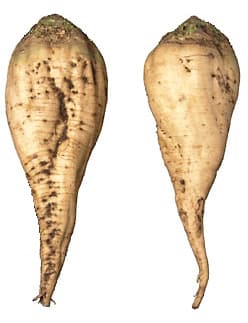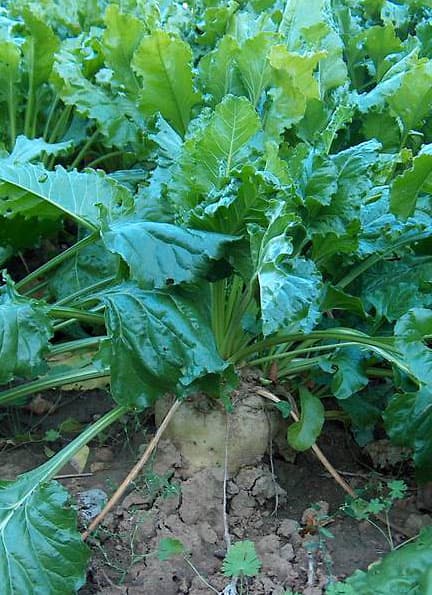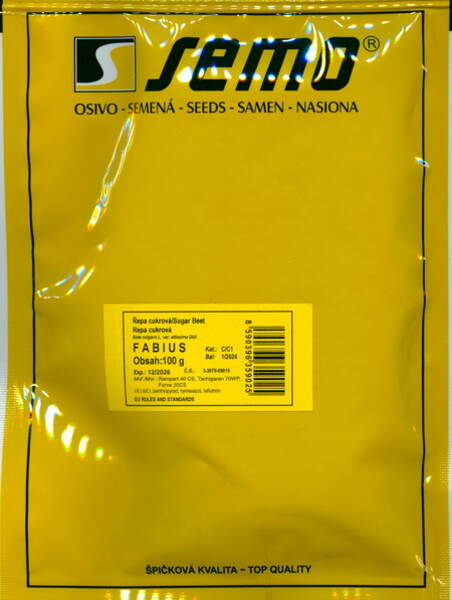In the first year, it develops a strong root system, tops and a thick, fleshy root vegetable with a rich supply of sugar and other nutrients.
The sugar beet root crop is white in color and has a regular pivotal shape with a relatively small head, a slowly escaping body, gradually turning into a very long "tail", and the main axis of the root system.
In the first year of life, the beet develops about 60-90 leaves, of which from a quarter to half normally die off.
Seeds and the first true leaves are more important for beet growth and yield than leaves in the second half of the growing season.
This circumstance must be taken into account when cultivating sugar beets, especially when protecting young seedlings from the harmful action of the soil crust and pests.
Signs of a rapid increase in the size of the root crop and the accumulation of sugar are: an increase in the number of leaves on a plant, an increase in the size of leaf blades and a leaf life, equal to an average of 60-70 days.
1 gram = 50-80 seeds.

* Sugar beets are very fond of rabbits, chickens and ducks.
It is advisable for everyone who keeps living creatures to grow sugar beets on the plots - they grow many leaves of a huge size (sometimes up to one meter).
The leaf mass of this beet is an excellent pet food.
And if someone wants to make syrup from sugar beet, then they prepare it like this: they wash, peel, chop the beets.
The shavings are poured with cold water, boiled and insisted until they cool completely. The juice is filtered off, excess water is evaporated in a "water bath" until the volume decreases by 4-5 times.
The juice turns into a thick, sweet syrup of dark color (readiness is determined in the same way as for jam - a steady drop on a saucer).
The syrup is poured into sterilized jars and placed in a cool place.
Such syrup is stored for a long time.

Beta vulgaris subsp. vulgaris var. altissima, Beta saccharifera, Beta vulgaris var. saccharifera Alef., Beta vulgaris conv. saccharifera Alef.















